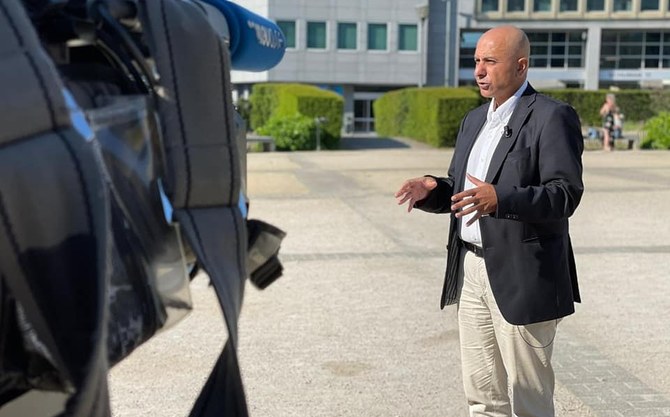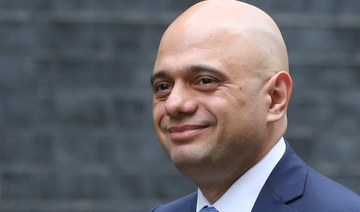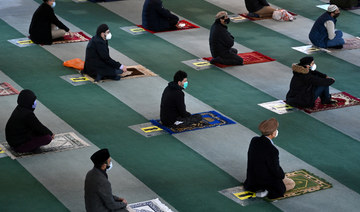LONDON: Muslim members of Britain’s ruling Conservatives were deliberately excluded from an inquiry into Islamophobia within the party, a former Conservative member of the European Parliament (MEP) has said.
Sajjad Karim, who represented northwest England in the European Parliament for 15 years, described last week’s report — which found no evidence of “institutional Islamophobia” — as a “whitewash.”
He told The Guardian that he is concerned that the party will use “sleight of hand” tricks to escape implementing recommendations made by the inquiry.
Baroness Sayeeda Warsi, former co-chair of the Conservative Party, said: “The report concludes that from the top — from the prime minister at one level — to local associations at the bottom, there is an attitude issue and a problem and a behaviour issue in terms of Islamophobia.”
She added that the party’s “processes, attitudes and behaviour” are at fault from its leadership to its grassroots.
Karim said party members, including himself, have “no confidence left that the party internally is willing to actually deal with this issue.”
The party has intermittently been accused of Islamophobia, and high-profile incidents include Prime Minister Boris Johnson, in a previous role, joking that Muslim women wearing burkas look like letterboxes and bank robbers.
Karim said Johnson’s apologies for that incident are “insincere” and “nothing but insulting.” He also cast doubt on the party’s willingness to change from within.
“We cannot just rely on internal processes to deliver a result,” Karim said. “That’s why I certainly take the view that it’s time for some sort of external light to be shone upon the internal workings of the Conservative Party when it comes to these issues.”
He revealed that he had told party officials of a “particular complaint” before the inquiry began, and was assured that he would be contacted once it was underway, but he heard “absolutely nothing.”
He only found out that it had closed from media reports, and said he was told by the party: “We’re very sorry, it’s too late for you to contribute to the inquiry — it was open to the public but now it’s closed.”
Karim added: “There are many others who simply were excluded from the process. And I think quite intentionally.”
He said Conservative activists had relayed “a number of accounts” of Islamophobia to him, and he had experienced it himself “both at a local level and at a parliamentary level” — meaning the problem “permeates right the way through” the party.
Karim stressed the importance of the UK remaining an “open, liberal, tolerant, rules-based society.”
He cautioned that a decline in these values — which hold freedom of religion as a fundamental right — is causing a rift between England and the other nations of the UK: Scotland, Wales and Northern Ireland.
Amanda Milling, Conservative co-chair, said she accepts all the recommendations made by last week’s inquiry, and the party “must work harder to stamp out discrimination of all kinds.”
She added that on behalf of the party, “I would like to apologize to anyone who has been hurt by discriminatory behaviour of others or failed by our system.”













